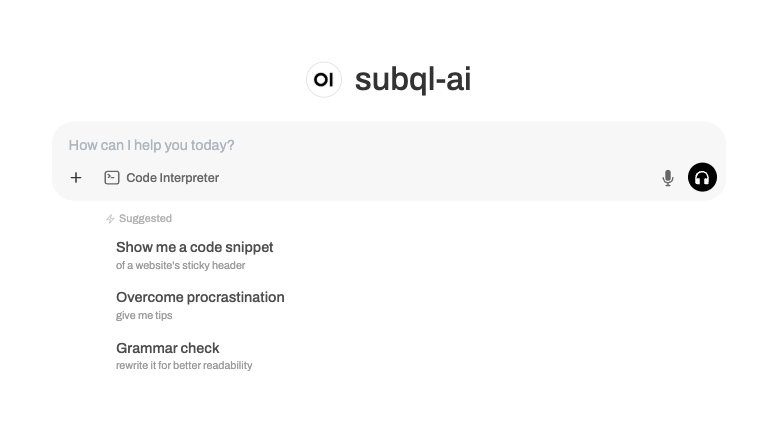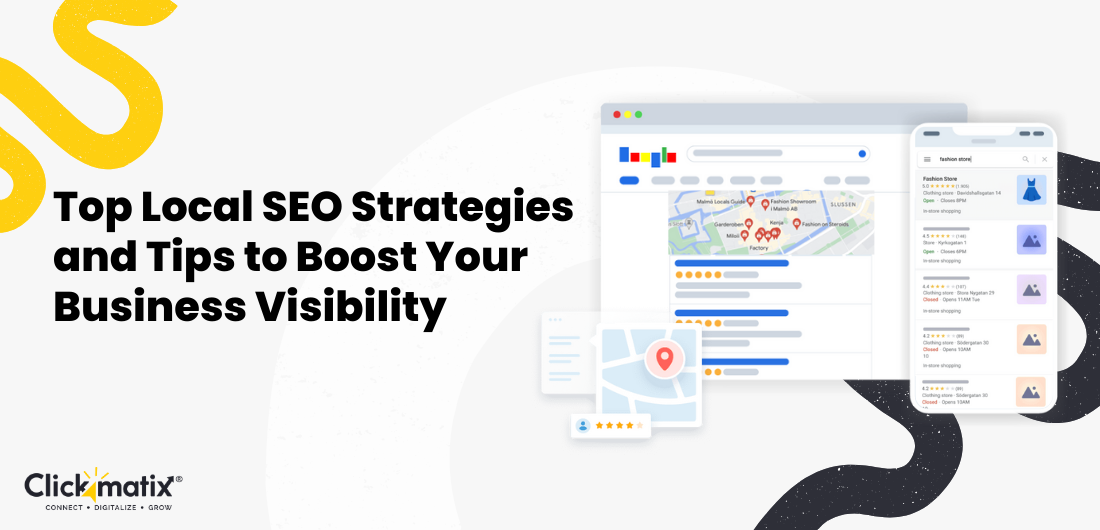Travel SEO Strategies: Tips to Drive More Leads
Imagine this: your travel agency becomes the talk of the town (or should we say, the online world!), with adventure-seekers exploring hidden gem destinations YOU curate – all thanks to SEO! However, without result-driven SEO strategies and basic understanding, you’re likely to get lost in the competitive world. This blog is your personalised treasure map […]

Imagine this: your travel agency becomes the talk of the town (or should we say, the online world!), with adventure-seekers exploring hidden gem destinations YOU curate – all thanks to SEO! However, without result-driven SEO strategies and basic understanding, you’re likely to get lost in the competitive world.
This blog is your personalised treasure map to SEO success. ️ We’ll guide you through the steps to unearth buried leads and transform your agency website from a hidden cove into a tourist hotspot.
Importance of SEO for Travel Agencies
Millions of people are actively searching online for dream vacations, exotic destinations, and amazing experiences. That’s the reality of the travel industry, and for travel agencies, getting noticed in those online searches is crucial. This is where travel SEO comes in.
Travel SEO is the practice of optimising your travel agency’s website to rank higher in search engine results pages for keywords that travellers use to find travel services. In simple terms, it’s like putting up a giant neon sign for your travel agency online, but instead of a physical location, it attracts potential customers searching for what you offer.
Here’s why travel SEO is so important for travel agencies:
Reach Travelers at he Right Moment:
Travelers heavily rely on search engines to plan their trips. When someone searches for “honeymoon resorts in Bali,” you want your travel agency’s website to be among the first results they see. Effective travel SEO helps you connect with potential customers exactly when they’re actively looking for travel services.
Attract the Perfect Audience:
SEO for travel websites isn’t just about ranking high; it’s about attracting the right kind of travellers. By targeting specific keywords related to your niche (adventure tours, family vacations, luxury getaways), you can reach people most likely to convert into paying customers.
Compete Effectively:
The travel industry is competitive. Local SEO for travel agencies allows you to target travellers specifically interested in the experiences your agency offers in your area. This helps you stand out from big online travel agencies and attract local customers seeking unique, personalised experiences.
Data Shows the Power of SEO:
Studies by Google revealed that a significant portion of travellers begin their travel planning journey on search engines. This means if your travel website needs to be ranked better for relevant keywords related to travel, you’re missing out on a huge chunk of potential customers.
SEO vs. Paid Advertising:
https://www.clickmatix.com.au/seo/perth/
Paid advertising options like Google Ads can get your agency noticed quickly. However, SEO for travel agencies offers a more cost-effective solution in the long run. Once you achieve good rankings, targeted traffic flows to your website 24/7 without ongoing advertising costs.
The Investment in Growth:
Think about the impact of having thousands of potential customers visiting your website daily. SEO can drive significant growth for your travel agency by generating a steady stream of qualified leads. While SEO requires effort and expertise, the long-term benefits are undeniable.
SEO Tips for The Travel Industry
Know Your Keywords
Lost in a travel brochure? That’s keyword research! Travelers use keywords to find dream vacations online. These keywords are like signposts. We can ethically eavesdrop on travellers using keyword research tools. These tools show what questions and terms people are searching for. The goal is to find popular keywords relevant to your travel services.
By understanding search terms, you can tailor your website content. This way, your website appears when travellers search for specific things, like romantic getaways in Europe.
Use Your Keywords Strategically
Scatter your keywords (clues!) throughout your website to help people find your deals. This is travel SEO – ranking higher for travel searches.
Place clues in:
- Titles: Clear, catchy titles with your target keyword for strong SEO.
- Descriptions: Short summaries with your keyword to tell searchers what’s on the page.
- Headings: Subheadings with keywords to break up content and improve readability.
- Body Text: Weave keywords naturally into informative and engaging content. Don’t stuff them in!
Focus on creating valuable content, not keyword stuffing. Your content should shine and guide travellers to their dream vacation!
Build Local Landing Pages
Imagine your Perth travel agency ranking for “Perth day trips.” Local landing pages can make it happen. Create pages for each area you serve. Include local keywords like “Perth family holidays.” Use SEO Perth to show what makes you perfect for Perth. Highlight local tours or special tours. This creates a landing page that speaks directly to Perth customers. Search engines notice and rank you higher for local searches. More online visibility means more customers for your business.
Use Structured Data
Search engines struggle to understand websites. Structured data translates your info into their language. Imagine your website with sparkling reviews or “In Stock” labels in search results! Stand out from the crowd. Structured data helps search engines understand you, making you the obvious choice for customers. It’s a win-win!
Update Your Google Business Profile
Just opened your store? Update your online address! Lost customers are no fun. Google Business Profile (GBP) is your free online storefront. Potential customers can find everything there. It shows up on Google Maps and Search, so keep it updated for local SEO.
Here’s how it helps:
- Accurate info: Happy search engines. They match you with perfect customers.
- Complete profile: Trust and transparency. Customers know they can find you and see great reviews.
Update your profile easily and get a local SEO boost. Attract more customers who want what you offer!
Use Event Schema
Event schema creates excitement and drives bookings! It is a travel agency’s digital bullhorn for special events, telling search engines what you offer, like hikes or spa getaways.
Clear details with schema:
- Exact Dates: Customers know when the adventure will happen.
- Pinpoint Location: Show the event’s location.
- Transparent Prices: Showcase ticket prices for easy budgeting.
Search engines use this to display your events. People looking for vacations might find your tour! Schema connects you with potential customers who crave your experiences.
Audit Your Existing Presence
Luckily, you don’t need to become a mechanic yourself. Free SEO tools like Google Analytics and Search Console are your trusty helpers. They’ll scan your website and identify areas for improvement, like slow loading times or outdated content that might frustrate visitors and leave quickly (bounce rate).
Think of Google Analytics as your diagnostic tool. It can pinpoint technical issues like slow loading speeds or broken links. Slow loading times can frustrate visitors and cause them to leave your site before they even see your amazing travel content!
Search Console is more like your service manual. It provides insights into how search engines see your website and helps you identify opportunities to improve your search ranking.
Maintain Your Reputation
Think about how you research travel destinations online before booking a trip. Potential customers do the same for your business! Positive reviews on Google, Yelp, and TripAdvisor are like glowing recommendations, boosting your online reputation and attracting more customers. Even negative reviews can be an opportunity. Responding promptly and professionally shows potential customers you value their feedback and strive for excellent service.
Create Quality Content
High-quality content is the golden rule in the world of travel SEO. Instead of just listing destinations, create engaging blog posts like travelogues for potential customers. Imagine exciting and informative articles about must-see places, insider tips you won’t find anywhere else, and heartwarming stories from satisfied travellers. Great content keeps visitors engaged, reduces bounce rates (people leaving quickly), and ultimately leads to more bookings.
Repeatedly Optimise Your Site for Improvements
Think of SEO as an ongoing adventure, not a one-time fix. Regularly use the data you collect from your SEO tools to update your website. Freshen up outdated content, optimise new pages you create, and adapt your strategies to keep pace with the latest trends and search engine updates.
Track Your Analytics
Understanding how your website performs is crucial for SEO success. Imagine your website’s analytics as a travel map. Google Analytics helps you track where your visitors come from (source), how they interact with your site (what pages they look at, how long they stay), and how many convert into paying customers (conversion rate). This data is your key to fine-tuning your SEO for maximum impact. Analyse your website’s performance to identify areas that are working well and areas that need improvement.
Focus on Link Building
Backlinks are like positive recommendations in the travel world. When reputable travel blogs and websites link to your site, it tells search engines that your content is trustworthy and valuable. The more high-quality backlinks you have, the higher your website will rank in search results. Reach out to travel bloggers, write guest posts on relevant websites, and collaborate with other travel businesses to build your backlink profile.
Optimise Images
Stunning visuals are a travel dream, and they’re essential for your website too! Make sure all your website’s images are SEO-friendly. Use clear and descriptive names for your photos, and write captions that tell visitors what they’re looking at. Most importantly, compress your images to ensure they load quickly – no one wants to wait for slow-loading photos! Optimised images enhance user experience and boost your rankings in search results.
Utilise Social Media
Social media platforms are your companions for spreading the word about your travel website. Share your content on Facebook, Instagram, and Twitter to increase visibility and connect with potential customers. Social media buzz can indirectly influence your SEO by driving traffic to your website and expanding the reach of your content. The more people who see your content on social media, the more likely they are to visit your website and learn more about your travel services.
Conclusion
Ditch the brochures and grab your SEO compass! This industry might be bustling, but with these tips, your agency will be a launchpad for travel, attracting a universe of explorers. Target regions, craft global content, and stay ahead of the curve.
Let our SEO experts map your course to travel domination. SEO’s a journey, so keep exploring and watch your bookings soar!
How can keyword research benefit my travel website?
Keyword research helps you understand what potential travellers are searching for online. By targeting relevant keywords, you can create content that meets their needs and increases your chances of appearing in search results, thus driving more organic traffic to your website.
What are some effective on-page SEO strategies for travel websites?
Effective on-page SEO strategies for travel websites include optimising title tags, meta descriptions, and headers with relevant keywords, creating high-quality, engaging content, and ensuring your website is mobile-friendly and fast-loading.
How does local SEO impact travel businesses?
Local SEO is crucial for travel businesses because it helps attract customers who are searching for travel services in specific locations. By optimising local search terms and utilising Google My Business, you can increase your visibility to local and regional audiences.
What role does content creation play in travel SEO?
Content creation is vital for travel SEO as it helps to provide valuable information to potential travellers. Regularly publishing blog posts, guides, and destination reviews can improve your website’s authority, attract backlinks, and keep visitors engaged, which positively impacts your search engine rankings.
What's Your Reaction?








































.png)











































